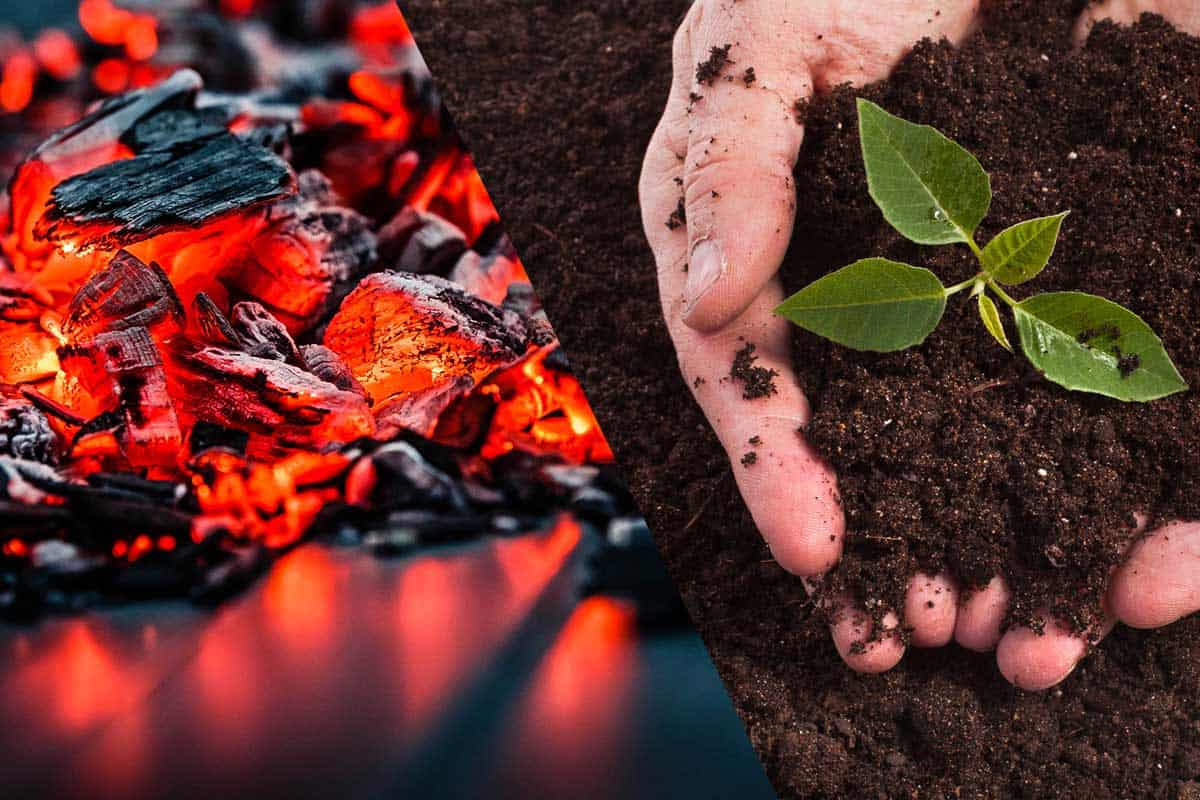After a backyard barbecue or cozy fire in the fireplace, you’re left with a pile of ash and charred leftovers. This brings up the question – is it safe to add coal ash to your compost pile? Or will that cause harm? Let’s explore the potential risks and alternatives for disposing of coal ash responsibly.
Key Differences Between Wood Ash and Coal Ash
-
Wood ash results from burning untreated natural wood. Coal ash comes from burning coal charcoal briquettes and other carbon-based fuels.
-
Wood ash acts as a soil amendment and fertilizer. Coal ash contains toxins and heavy metals that can contaminate soil.
-
Small amounts of wood ash can go in compost Coal ash should never be added to compost piles
The composition and properties of these two ashes vary significantly. This means they cannot be used interchangeably.
Potential Risks of Coal Ash in Compost
While wood ash can add nutrients, using coal ash in compost poses several dangers
-
Toxic heavy metals – Coal ash may contain arsenic, mercury, lead, and other heavy metals that can leach into soil and groundwater. Even small amounts of these metals can accumulate over time to toxic levels.
-
Soil and plant contamination – Metals and toxins from coal ash can be taken up by plants, causing contamination issues. Food crops may absorb harmful substances.
-
Pollution spread – Compost containing coal ash that is spread in gardens and fields disperses pollutants further into the environment.
-
Harmful chemical residues – Coal ash from briquettes often contains petroleum-based additives and binding agents. These can be toxic to plants and soil organisms when released.
Due to these major risks, most environmental agencies warn against using coal ash as compost or fertilizer. The hazards simply outweigh any potential benefits.
Safe Ways to Dispose of Coal Ash
To keep coal ash out of compost piles, follow these responsible disposal methods instead:
-
Allow ash to fully cool, then place in trash bags for landfill disposal. Be sure no embers remain before bagging.
-
Contact your local waste management authority to ask if coal ash is accepted at your area’s hazardous household waste facility or solid waste transfer station.
-
Look into commercial ash disposal services that handle ash from large-volume sources like industry and utilities.
-
For small amounts of uncontaminated charcoal ash, sprinkle directly in gardens as an occasional fertilizer. Do not apply heavily or use in compost.
The key is keeping coal ash safely contained and preventing environmental contamination. Divert it from any location where runoff could spread toxins.
Tips for Using Wood Ash in Compost
In contrast to coal ash, natural wood ash can be composted when used judiciously:
-
Limit wood ash to 5% or less of total compost volume to avoid altering pH too drastically.
-
Do not use wood ash from chemically-treated lumber or other contaminated sources. Use only pure wood ash.
-
Mix in ash thoroughly and allow compost pile to age fully before application. This allows the ash to break down further.
-
Test soil pH before spreading compost with wood ash. Avoid raising pH too high in soils that are already alkaline.
-
Alternatively, simply sprinkle a light dusting of wood ash directly onto garden beds and till in instead of adding to compost.
Overall, wood ash is best used sparingly. Monitor its effects on soil pH and plants when first applying.
Coal ash should never go straight into compost piles or be broadly applied as fertilizer due to serious heavy metal risks. But pure, uncontaminated wood ash can be composted judiciously in small quantities. Be aware of these key distinctions when dealing with leftover ashes from your fireplace, grill, or campfires. Using the wrong ash irresponsibly can cause environmental problems. Follow best practices to safely recycle natural wood ash or dispose of toxic coal ash. A little awareness goes a long way in keeping your garden healthy and sustainable.
The Dos and Don’ts of Using Wood Ash in Your Compost
FAQ
Is coal ash good for your garden?
What can I do with coal ash?
Can Kingsford charcoal ash be composted?
Can fireplace ashes be composted?
Can you use ash in compost?
A balanced mix: Mix ash with diverse organic matter such as kitchen scraps, leaves, grass clippings, and vegetable peels to maintain a healthy balance of nutrients. Avoid using charcoal or coal ash: Charcoal and coal ashes contain chemicals harmful to plants and should not be used in compost. Stick to wood or plant-based ash instead.
Can you put charcoal ash in compost?
Coal and charcoal ash from a fire or grill can raise the pH of your compost too high, making it inhospitable for many plants that prefer slightly acidic soil, says Mathis. Oils and grease can smother decomposing materials, reduce oxygen, and slow down decomposition when added to compost.
Can you put wood ashes in compost?
The secret is this: wood ash is alkaline, which basically means that it has a greater than seven pH level. So, if you add wood ashes to compost, it will help the compost to be more alkaline and less acidic, making it easier for plants to grow. It creates better conditions for most plants and vegetables. Can You Compost Ashes?
How do you dispose of coal ash?
How to use or dispose of coal ash. Rather than apply coal ash directly to the soil, mix it into compost whilst making it. This avoids any harmful mechanical problems with the ash clumping. Being dry it helps with absorbing excess moisture in the compost. Just use the compost as normal.
- A Complete Guide to Caring for Yuki Cherry Blossom Shrub - January 23, 2025
- Identifying Red Hot Poker Seeds: What to Look For When Harvesting Torch Lily Pods - January 23, 2025
- A Complete Guide to Harvesting Evening Primrose Seeds - January 23, 2025

